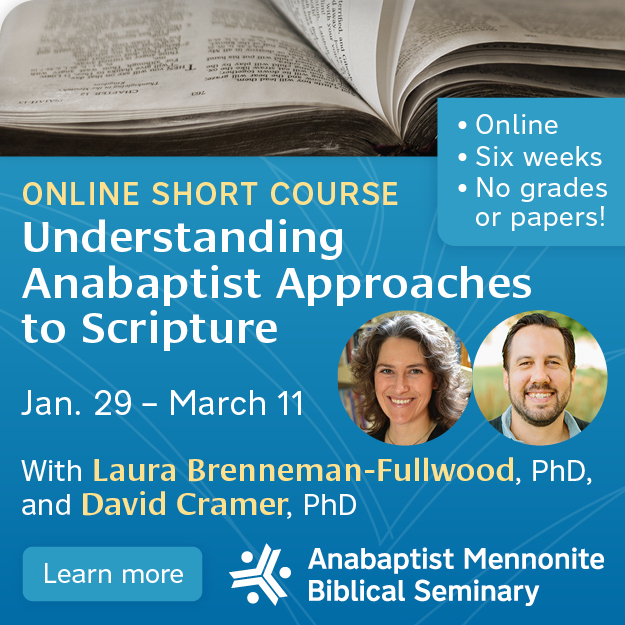Poet Sally Ito was born in Taber, Alta., and currently lives in Winnipeg. She has published three books of poetry, along with a collection of short stories. Her latest book of poems is Alert to Glory, published by Turnstone Press in 2011. Ito teaches creative writing at Canadian Mennonite University, Winnipeg, and was recently writer-in-residence at the Centre for Creative Writing and Oral Culture at the University of Manitoba. Earlier this year, Nick Schuurman of Cambridge, Ont., spoke with Ito about her most recent book of poetry, the work of writing and faith.
NS: Mary Oliver wrote, “To pay attention is our endless and proper work.” Your latest book, Alert to Glory, is largely about observation and making sense of what we see. What do we risk missing in distraction?
SI: Oh, everything and anything, I’d say. Observing and paying close attention is a discipline. As I quoted a poet friend of mine, Tim Bowling, in my book: “Poetry is a discipline of consciousness.”
NS: You also write about more distant, future sorts of seeing, about catching glimpses of things yet unseen in their entirety. What gives you cause for hope and how does that inform your work?
SI: There are a lot of things to be hopeful about. I’m largely an optimistic person myself, but I think that writing, ultimately, is a hopeful act. The tenacity people must have to write in a time when there is so much written already is a deeply hopeful disposition (or delusion!), don’t you think?
NS: Many of us, I think, have this image of the poet as an entirely cloistered figure. In what ways has your work as a poet been a shared labour, informed by community and family?
SI: It’s not been a shared labour, really, except insofar as I’ve observed my commu-nity and family, and drawn conclusions from those observations through writing.
However, I do think that poetry can be more than that. When it is performed or read, it can act as encouragement and inspiration for others. Poetry often says what is unsaid, but not unfelt. People sometimes have a need to hear words about what they feel, but have never truly articulated to themselves or others.
NS: Borrowing from the words of the Psalms, you write about the fact that the universe is not a mute place, and that, if we take time to stop and listen, we will notice it is, in fact, saying something. What have you heard, and from where? What are some of the places in which you have been most overwhelmed by that sense of awe and wonder?
SI: Poetry comes to me in two ways: snippets of words that seem to describe a situation or feeling I am having at the moment; or are “musical” in some fashion, or by way of an image that keeps haunting me.
Awe and wonder are sparks off the flint of the contemplative mind. Places in the natural world where there is beauty or grandeur, or the presence of these in the human world of created architectural forms or in art, bring on a sense of wonder and awe. But it is all in the disposition of the seeing eye before the apprehension of these things as awesome and wonderful. You must be “alert” to see the “glory.”
NS: What sort of things do the students you work with find most difficult when it comes to creative writing, and what do you find yourself offering in terms of advice and experience to help them work through it?
SI: Creativity is in itself a messy process. You must be inspired to create, which is a different state of mind than what is needed, say, for editing and revising, or even reading, for that matter.
After you’ve created, then you have to take a breath and step back, and say, “Now, is this good or bad? How can I make it better? What can I do to improve the work?” Then you have to make changes and shape your piece accordingly through your own critical processes and from receiving feedback from readers engaged in the same process themselves.
Most students don’t have difficulty with the “creating” part, but they do have trouble with the “critical” part. It takes a lot of nerve and energy to create things, but you also need a thick skin to be told, or tell people, that the work is “confusing,” or “missing something,” or that it can be improved by changing certain elements
NS: In “Poet” you write, “I had it all wrong these years / trying to make a career out of skipping stones / on the smooth flat waters of the lake.” Three books in, do you still struggle with that tension?
SI: Oh yes. I think every poet struggles with a vocation she or he feels is under-appreciated by the world at large.
NS: Who have you been learning from lately, and what has that looked like?
SI: My creative writing students recently did oral presentations for me on different contemporary and modern poets, and one student introduced to me the work of Irish poet Eavan Boland. Boland was an interesting writer with a feminist perspective, whose verse was engaging to read. I took a few books of her poetry out of the library recently, including a book on the writing of sonnets in English, as well a book of translation of German women poets in the post-war period. Poet Robert Bly has talked about the need for poets to read widely from translated works, and I agree, so discovering that Boland had done these translations of German was a pleasure to discover and to read. l
Nick Schuurman is a member of First Hmong Mennonite Church, Kitchener, Ont., and a student at McMaster Divinity College, Hamilton, Ont.









Leave a Reply
You must be logged in to post a comment.